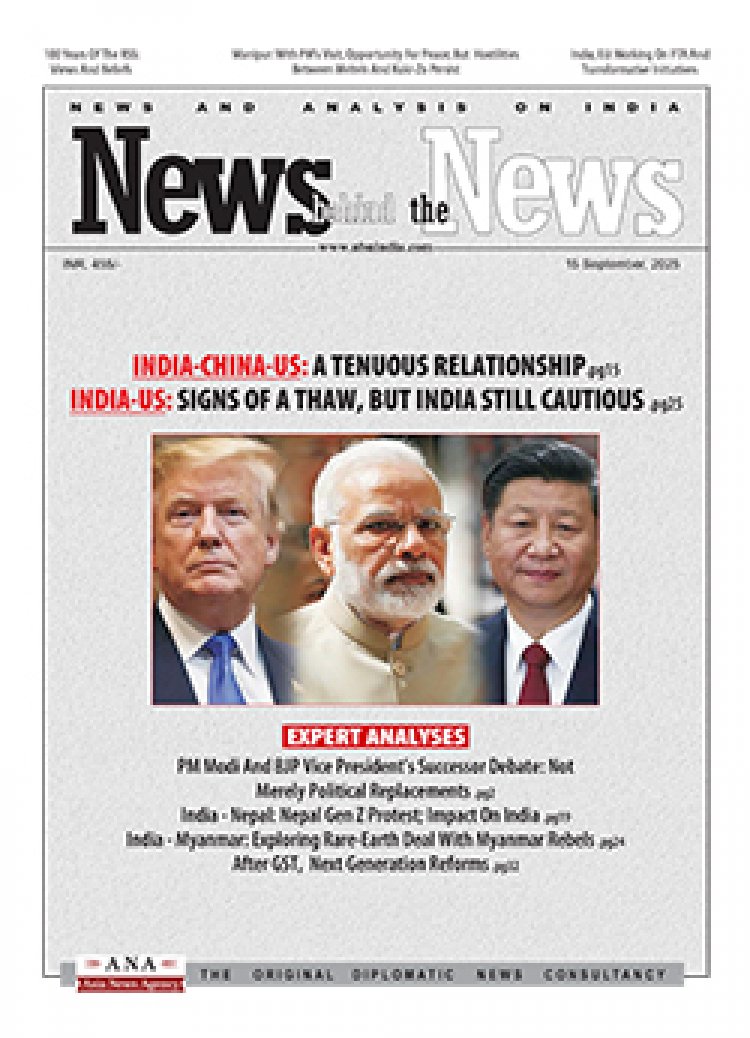Indus Waters Treaty Ruling: Setback for India
STORIES, ANALYSES, EXPERT VIEWS

The supplemental award of the Court of Arbitration in The Hague on June 27 is a setback for India. The tribunal rejected India’s suspension of the Treaty and reaffirmed its jurisdiction despite India’s absence from the proceedings. India responded swiftly. It called the court illegal, the proceedings irrelevant, and reiterated that the Treaty stands in abeyance until Pakistan abjures cross-border terrorism.
The dispute isn’t about waters alone, it is strategic too
The simmering dispute over the Indus Waters Treaty, writes Syed Akbaruddin (former permanent representative of India to the United Nations, and dean, Kautilya School of Public Policy, Hyderabad) “is not just about water. It is about sovereignty, security, and a Treaty that has withstood conflicts for over six decades but now strains under the pressures of asymmetric warfare. The question before India is not only legal. It is strategic, too….”
The Indus Waters Treaty, brokered by the World Bank in 1960, was hailed as a triumph of cooperative diplomacy. It partitioned the rivers of the Indus basin between India and Pakistan, granting India full rights over the eastern rivers and limited use of the western ones. Despite wars and political breakdowns, the Treaty endured because it insulated water from politics. “But terrorism has no insulation,” states Akbaruddin. “And India, bleeding from attacks launched across the very rivers it shares, reached the limits of forbearance.”
The award: Nevertheless, “the Hague tribunal’s award may be procedurally valid. It reflects the logic of legal permanence.” Pakistan, which initiated the proceedings, argued that disputes over interpretation should be addressed legally and stated that India’s suspension was unjustified. The Treaty, the panel concluded, cannot be suspended unilaterally, and jurisdiction, once triggered, cannot be undone by later events.
India’s justification for keeping the treaty in abeyance
But the law cannot be blind to context, according to Akbaruddin. “India did not act lightly. It placed the Treaty in abeyance after Pakistan-based terrorists killed dozens of Indians in a brazen attack in Pahalgam on April 22….” Moreover, “India has not cut off water or violated Pakistan’s share. Instead, it has frozen the instruments of cooperation as a wake-up call. The message is stark: Treaties are built on trust, and trust cannot flow when terror does…..India’s decision to place the Treaty in abeyance is not vengeance. It is a consequence.”
India’s options: The old order of water-sharing, insulated from politics, “is unlikely to survive unchanged. As India plans for the future, it faces a range of strategic choices beyond the purely legal. It can continue boycotting arbitration to deny it legitimacy. It can withdraw from the Treaty entirely, though this carries risks. It might also maximise its legal entitlements, including the neutral expert’s forthcoming decision, and use structural advantages to pressure Pakistan without breaching the agreement. Another path is to offer conditional cooperation, using upstream geography as leverage, if Pakistan meets clear and verifiable conditions. A more cautious approach would involve keeping technical channels open while political tensions persist. Each course demands a careful balance of resolve and restraint that matches the stakes.”
However, writes Akbaruddin, “India should craft a diplomatic path that links re-engagement to Pakistan’s demonstrable action on terror. This is not a compromise. It is conditional justice. If Pakistan wants the benefits of the Indus water system, it must stop using terror as a tool."
In the end, “the Indus is a lifeline. For Pakistan, yes. But also for India, not just as a source of water, but as a symbol of resilience, restraint, and rights. India’s policy must reflect that duality. It must be hard-headed in execution but clear-eyed in intention. It must signal that peace is not weakness and justice is not optional.”















